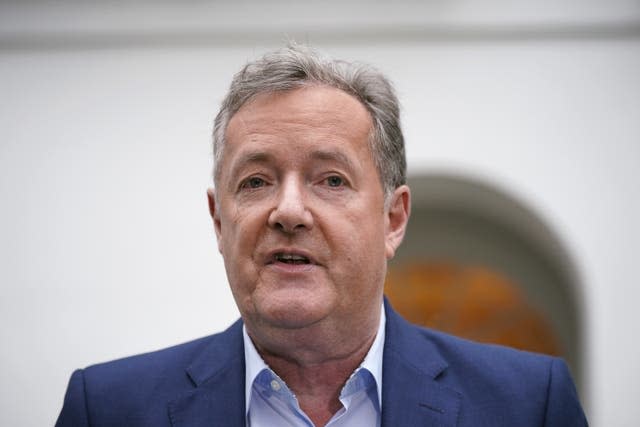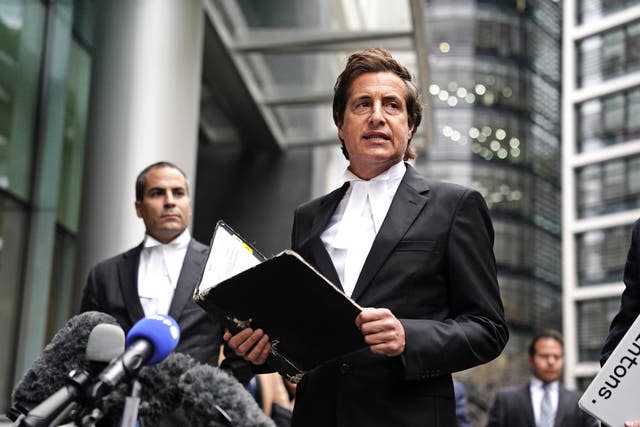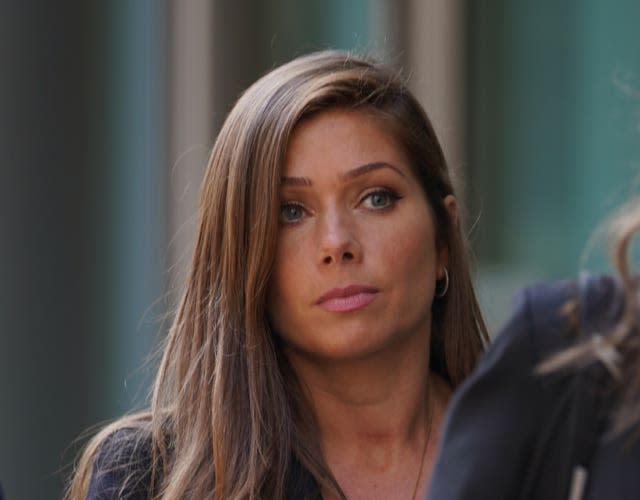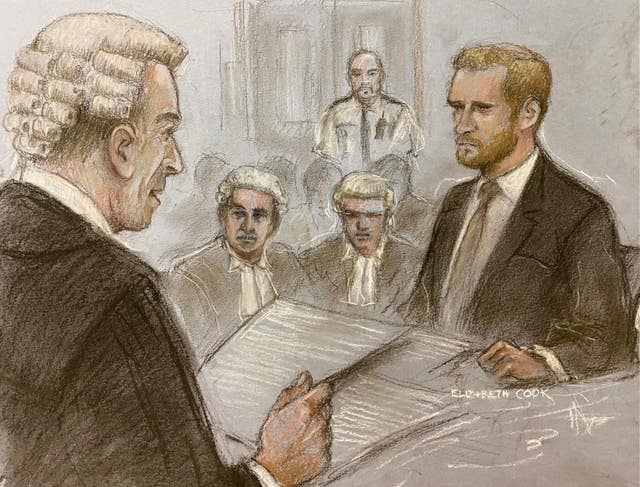Duke of Sussex demands police probe after High Court phone hacking ruling
The Duke of Sussex has called on the police to investigate a tabloid newspaper publisher after being awarded nearly £150,000 in damages in his High Court phone-hacking claim.
On Friday, a judge ruled that phone hacking became “widespread and habitual” at Mirror Group Newspaper (MGN) titles, and was practised “even to some extent” during the Leveson Inquiry into press standards.
Harry, 39, said his partially successful case against MGN was “vindicating and affirming” and “a great day for truth, as well as accountability”.
Mr Justice Fancourt’s finding that MGN editors knew about voicemail interception and unlawful information gathering, prompted ex-Daily Mirror editor Piers Morgan to deny he had ever hacked a phone or instructed anyone else to.
A Metropolitan Police spokeswoman said that it would “carefully consider” the judgment, adding: “There is no ongoing investigation”.

The duke sued MGN for damages, claiming journalists at its publications – the Daily and Sunday Mirror and The People – were linked to methods including phone hacking, so-called “blagging” or gaining information by deception, and use of private investigators for unlawful activities.
In a summary of his ruling on Friday, Mr Justice Fancourt concluded that the duke’s phone was only hacked “to a modest extent” by the publisher and awarded him a total of £140,600 in damages.
The judge ruled that unlawful information-gathering was “widespread” at all three Mirror Group titles from 1996 onwards, and phone hacking became “habitual” from 1998.
He also found that there was still “extensive” phone hacking from 2006 to 2011.
The unlawful activity was “concealed” from Parliament, shareholders and the public, as well as the board overseeing MGN, the judge said.

In a statement after the ruling, Harry said: “This case is not just about hacking – it is about a systemic practice of unlawful and appalling behaviour, followed by cover-ups and destruction of evidence, the shocking scale of which can only be revealed through these proceedings.
He said acts listed in the judgment were “prime examples of what happens when the power of the press is abused” and called on “the authorities, the financial regulator, the stock market who were deliberately deceived by Mirror group, and indeed the Metropolitan Police and prosecuting authorities, to do their duty for the British public and to investigate bringing charges against the company and those who have broken the law”.
The duke added: “Today’s ruling is vindicating and affirming. I’ve been told that slaying dragons will get you burned but, in light of today’s victory and the importance of doing what is needed for a free and honest press, it is a worthwhile price to pay. The mission continues.”
Elsewhere in his ruling, the judge concluded that phone hacking “remained an important tool of the kind of journalism that was being practised at all three newspapers up to and to a limited extent even during the Leveson Inquiry, and it was fed by extensive unlawful information gathering”.
He said MGN had emerged “largely unscathed” from the government-appointed inquiry into the culture, practices and ethics of the press from 2011 to 2012, with a decision taken “at a high level” that the publisher’s interests “were best served by keeping a lid on as much as possible of what had happened”.
The judge said MGN failed “to make full disclosure” to the inquiry and its claim that did not have the ability to investigate allegations of unlawful activity was “simply untrue”.
“Even today, MGN is not being open about the extent to which voicemail interception and unlawful information gathering went on at its newspapers,” the judge said.
Harry’s case was heard alongside similar claims brought by actor Michael Turner, who is known professionally as Michael Le Vell and is most famous for playing Kevin Webster in Coronation Street, actress Nikki Sanderson and Fiona Wightman, the ex-wife of comedian Paul Whitehouse.

Claims brought by Ms Sanderson and Ms Wightman were dismissed by Mr Justice Fancourt because they were made too late, despite the judge finding that some of their complaints were proved.
Mr Turner was awarded a total of £31,650 in damages after the judge ruled his phone hacking and unlawful information-gathering case was “proved only to a limited extent”.
Their cases were considered as “representative” of the types of allegations facing MGN and Mr Justice Fancourt’s findings could affect the outcome of other pending claims, which include challenges brought by actor Ricky Tomlinson, the estate of the late singer George Michael, ex-footballer and television presenter Ian Wright and Girls Aloud singer Cheryl.
Following the ruling, an MGN spokesperson said: “We welcome today’s judgment that gives the business the necessary clarity to move forward from events that took place many years ago.
“Where historical wrongdoing took place, we apologise unreservedly, have taken full responsibility and paid appropriate compensation.”

In a summary of his ruling, the judge said the duke’s case against MGN was “proved in part only”.
He said that 15 of the 33 articles about Harry examined at trial “were the product of phone hacking of his mobile phone or the mobile phones of his associates, or the product of other unlawful information-gathering”.
“I consider that his phone was only hacked to a modest extent, and that this was probably carefully controlled by certain people at each newspaper,” the judge added.
Mr Justice Fancourt said this happened “on occasions” from around the end of 2003 to April 2009, adding that Harry’s claims over the other 18 articles “did not stand up to careful analysis”.
The judge said he was awarding damages to the duke to compensate him “fully for the distress that he suffered as a result of the unlawful activity directed at him and those close to him”.
“I recognise that Mirror Group was not responsible for all the unlawful activity that was directed at the duke, and that a good deal of the oppressive behaviour of the press towards the duke over the years was not unlawful at all,” the judge continued.
“Mirror Group, therefore, only played a small part in everything that the duke suffered and the award of damages on this ground is therefore modest.”
He said damages were also awarded to the duke “to reflect the particular hurt and sense of outrage that the duke feels” because two directors of Trinity Mirror plc (as MGN’s parent company was formerly known), knew about “the illegal activity that was going on at their newspapers and could and should have put a stop to it”.
The high-profile trial of the claims, which saw Harry give evidence from the witness box, ended in June after seven weeks of evidence from dozens of witnesses, including former journalists, editors, private investigators and MGN executives.
MGN largely contested the claims and denied that any newspaper articles complained of resulted from phone hacking, while contending that the vast majority did not arise from any other unlawful activity.
The publisher made a limited number of admissions of unlawful activity in relation to the duke, Ms Sanderson and Ms Wightman, for which the publisher apologised and accepted they will be entitled to some damages, but denied the majority of their claims and Mr Turner’s entire case.
